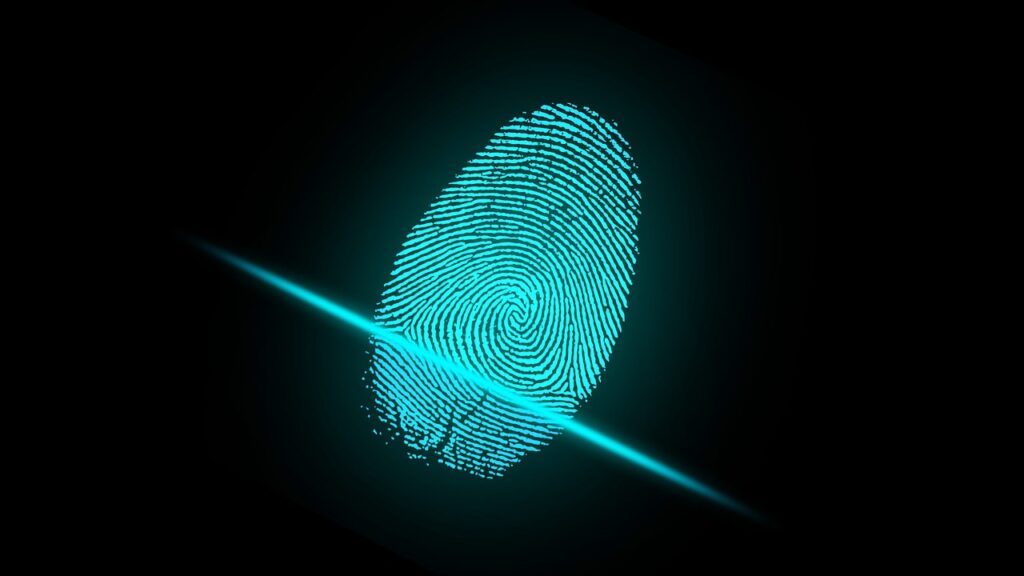By: Lauren Soper | Staff Writer
Things aren’t always how they appear and once you take a closer look, the beautiful New England you once knew turns dark faster than it’s bitter winters. Katie King and Liz Corey, hosts of the True Crime New England podcast, stop at nothing to expose these perpetrators while reclaiming justice for their victims. If thrills are what you seek, then don’t travel far, as each episode covers a horrific crime taking place in what just might be your hometown. From the northernmost point of Estcourt Station, Maine down to the most southern point of Great Captain Island, Connecticut, lie some of the most famous and unheard true stories that will leave you second-guessing a friendly stranger.
Behind any good podcast is an even better host and in this case hosts. Katie and Liz, two childhood best friends fused a common curiosity and passion to craft True Crime New England in 2021. Each episode finds focus on high and low-profiled cases, maintaining a strong effort to address “missing white woman syndrome” with a special focus to include communities of color, whose stories are often overlooked and under-represented. Leaving little to the imagination and nothing unsaid, here are Katie King and Liz Corey of True Crime New England.

A lightly edited conversation:
Q: Where did your addiction to thrills and crime begin and how did it lead to the creation of a true crime podcast?
Liz: Well, I think with media there just been so many presentations of crime and things around that, that I discovered I was really into it… I kind of was like, “why do I like thinking about this and looking up things” and then I was like, “Okay wait, I think like this as a whole.” It’s very interesting and it’s messed up but it’s really psychologically fascinating.
Katie: My mom would read me Steven King books when I was way too young to be even knowing who Steven King was… and I was like, “I am scared but I like this.” Then Steven King kind of led to true crime… and my family being like, “don’t do this, don’t walk around at night, there are terrible things that happen.” But I was like, “what are all these terrible things?”
Q: How did you decide to base your podcast’s stories within New England?
Liz: I think we pride ourselves in the fact we are one of very few podcasts that are specific to New England and we never-ever break that…As much as I love My Favorite Murder, they cover cases that have been covered a million times over… We were like, “well nobody has heard of these cases that are important to us, so why not try and get the word out there about things that will probably never get enough attention.”
Katie: I think the Pacific North-West gets all the credit because of all the serial kills hang out over there. We have done so many episodes on serial killers and crazy, crazy crimes that no one has heard of, so that’s kind of our whole thing; how can we bring attention to these crimes where you don’t really think of these crimes happening… That’s kind of our angle.
Q: How would you compare your show to another popular podcast, like My Favorite Murder?
Liz: I think a lot of it is the humor and the fact that it’s a coping mechanism more than it’s just us trying to be funny and making people laugh. If we’re being honest if you’re listening to an episode what you’re hearing is awful things that have happened and then we like laugh in the middle of it, it feels weird, you know?… That’s how I kind of think of it and My Favorite Murder is a great example. That’s how I began to think, “oh you can cope like that? Great because that’s what I want to do.” I think in that regard, we are pretty similar. I mean I can only say I wish we were more similar because I love them so much.
Katie: Instead of doing the My Favorite Murder thing where both the hosts do their research separately and then tell the piece to each other, we thought we could research separately but then each tell the case as we are each learning something, and then we’re telling you guys (referring to the audience).
Q: You both have made a creative decision to add humor and lighthearted conversation to your storytelling. How does this help or hinder connecting with audience members?
Liz: As far as our audience goes, I feel like most people are with us and they like it. Of course there are people who don’t like that which is challenging but unfortunately, we can’t please everyone. So, it’s like, “Okay, we feel bad, but we know we’re not making fun of any victims, we’re not laughing at anything about the situation. It’s just we separately are funny” … Obviously making fun of anyone is not great but these people have killed and raped and done terrible things…Most of our humor isn’t even about the perpetrator themselves, it’s just general.
Katie: … the fine line is what are we using the humor for? …I feel like when we’re talking about the worst day in someone’s life and the most horrible thing you can imagine happening to a person it was kind of our natural response to use humor. In terms of the victims, I feel like we do a pretty good job with being respectful towards the victim, the victim’s family, and the situation in general. Usually where our humor stems from is making fun of the perpetrators and making jokes about the perpetrators.

Q: Taking into account trigger warnings and sensitive subjects, which episode was the hardest for you to record?
Liz: I have one just because it’s personal to me, it’s episode 21. I interviewed my dad. His best friend growing up had a little sister and she was abducted on her way to school. He talked about that with me ever since I was little, which also may have started my obsession. But for once when we started talking about it, he started crying and it was very emotional and kind of also solidified to me that this happens to people everywhere… I think that was hard for me because it was based in where I grew up and it had that connection.
Katie: For me, it was Angela Palmer…I want to say she was three or four and someone put her in the oven. Someone wrote a book about it, I read the whole book. It was one of the most atrocious things I had ever heard in my life. That was really hard because it involved not only a child but there was a lot of psych involved too, and with me working in a pediatric psychiatric hospital I get a lot of kids who are in just horrible, horrible situations… I think with kids too, there is a level of innocence with them…that they most definitely don’t deserve it. No one deserves it but especially not children.
Q: For new listeners how would you describe the difference between an episode and a case profile?
Katie: Case profiles are new, it’s a newer thing we have been doing with mini episodes. We have been doing them for a couple months now on Instagram and our website to get pieces on people of color who don’t get media attention. This is something we often talk about in true crime is the, ‘missing white woman syndrome’ where if a white woman goes missing or is murdered that where the media directs their attention, law enforcement directs their attention, and it leaves everybody else kind of in the dust. Their family’s screaming into the void saying, “we’re here too, we have loved ones missing too and no one is saying anything.” We thought, New England is not known for diversity…so even more so these cases of people of color were getting swept under the rug. We were like, “if we can’t do full entire episodes on them, we can at least still be talking about them instead of contributing to the problem of saying, ‘well you know there’s not enough information for a full episode so were just not going to talk about it’” …They are a lot more serious I think in their tone… even if we don’t have enough information for a mini episode it still gets a social media post.
Liz: We definitely don’t joke as much in those because I think it’s important to put out the message that even though there is a lack of diversity in these states… people of color are still here, and they deserve justice and just as much attention as of any of the ones (referring to episodes) we have done that is about a white person. We had someone from our high school reach out to us a year ago now and said, “I love your show, but I noticed all your cases are about white people.” I was like, “that’s really a good point” but it wasn’t like we were looking for just white victims, that’s all we could find.
Q: Which episode was your favorite to record?
Katie: I personally loved Abby Hernandez, episode 27… I love that one because it’s a survival story. She was kept captive by this awful, awful person who tortured her for 9 months. I want to say she was 14 at the time…the FBI said, she did all the right things, and she was brilliant”. She befriended her captor and survived and made it home to her mom. She endured some of the most horrific things, and I couldn’t imagine half of the things she went through, but now she an advocate and she’s a mom.
Liz: That’s a good one because it’s not often that they end positively. That’s probably one of the only ones that really has, to be honest. It is a great story because she also shows people who are scared of true crime things that anything is possible, even though it’s scary but she made it and she survived. It’s a great story.
Link to podcast: https://www.truecrimene.com/
Photo Credit: Pixabay














